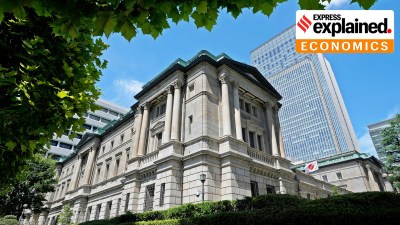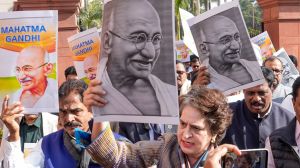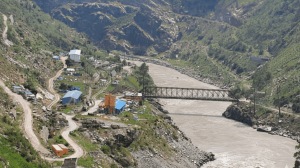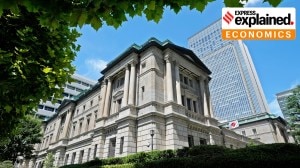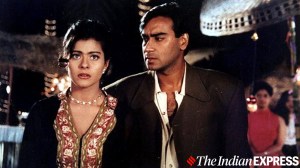Stay updated with the latest - Click here to follow us on Instagram
‘Painstakingly negotiated declaration’: How global media covered G20 Summit
The New York Times called the Declaration "an eye-opening departure" from the Bali declaration adopted last year, where world leaders had condemned Russia for its invasion on Ukraine, and called on Moscow on withdraw its troops.
 Indian Prime Minister Narendra Modi (AP Photo)
Indian Prime Minister Narendra Modi (AP Photo) World leaders Saturday arrived at a joint communique at India’s G20 Summit, called the G20 New Delhi Leaders’ Declaration, following months of work, including a few sleepless nights of negotiations.
Announcing the adoption of the Declaration, Prime Minister Narendra Modi, in his remarks on ‘One Family’ said, “… Good news has just arrived. With our teams’ hard work and your cooperation, consensus has emerged on New Delhi G20 Leaders’ Summit Declaration… I propose that the Leaders’ Declaration be adopted. I announce adoption of the Declaration.” The successful adoption of the Declaration, which is more expansive and elaborate than the Bali Declaration that was adopted in 2022, was a diplomatic tightrope-walk in the language between the Russia-China bloc and the West, led by the G7.
As India led the negotiations with help from countries in the Global South — Brazil, South Africa and Indonesia — here’s a look at how the international media covered the adoption of the Declaration, and the G20 Summit at large.
‘A painstakingly negotiated declaration’: The New York Times
The New York Times called the G20 Declaration “painstakingly negotiated,” and noted the omission of “condemnation of Russia’s invasion of Ukraine or its brutal conduct of the war,” and underlined the lamenting of the “suffering” of the Ukrainian people.
It called the Declaration “an eye-opening departure” from the Bali declaration adopted last year, where world leaders had condemned Russia for its invasion of Ukraine, and called on Moscow to withdraw its troops.
‘Day of unexpectedly big headlines at the G20 summit’: BBC, UK
Underlining that few expected a joint declaration on the first day of the Summit, given the sharp divisions among the group members over the war in Ukraine, BBC called it a “day of unexpectedly big headlines at the G20 summit.” The BBC, commenting on the Declaration, stated: “The Delhi declaration appears designed to allow both the West and Russia to find positives.”
It highlighted that the declaration specifies “the war in Ukraine” rather than “the war against Ukraine.” “This choice of words could have increased the likelihood of Russia endorsing of the Declaration,” the BBC report said. Moreover, the news organisation gave space to discussions on climate change, calling it a “hotly discussed topic,” and PM Modi’s official invite to the African Union (AU) to become a permanent member of the G20 a “good news for Africa.”
‘Looks like a concession from Western countries on language on Ukraine War’: ABC, Australia
The Australian Broadcasting Corporation (ABC) pointed out that the statement which did not condemn Russia’s role in the war “looks like a concession from Western countries on language on the Ukraine War.”
The report called the Declaration led by India, “a careful approach” taken by the country — as it called for an end to the violence in Ukraine while maintaining friendly ties with Russia. It also noted Australian Prime Minister Anthony Albanese’s condemnation of Russia’s “immoral invasion.”
‘Ambitious corridor connecting India, Europe’: The Washington Post
The Washington Post rendered its focus on the announcement of the new rail and sea corridor between India and Europe via Middle East, calling it an “ambitious proposal aimed at further connecting a volatile region and countering China’s years-long backing of massive infrastructure projects around the world.”
While US President Joe Biden, sitting near Crown Prince of Saudi Arabia Mohammed bin Salman Al Saud, called the rail corridor, “a real big deal,” the report highlighted that the exchange between the both of them is “particularly sensitive just ahead of the anniversary” of the September 11, 2001 attacks, “in which most of the plane hijackers were Saudi nationals.”
- 01
- 02
- 03
- 04
- 05


